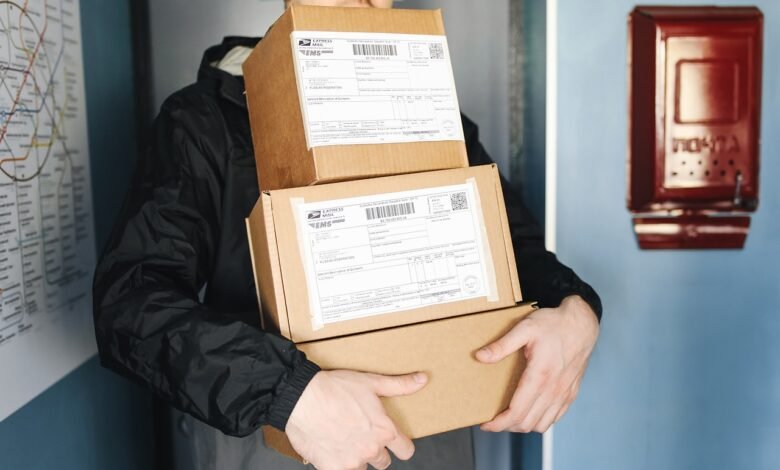
Shipping heavy items can be a daunting task, especially if you’re not familiar with the best practices for packing and sending them. Whether you’re a business owner shipping products to customers or an individual sending a gift, knowing how to properly pack heavy items is crucial to ensure they arrive safely at their destination. In this guide, we’ll cover everything you need to know to send a heavy parcel without worry.
1. Choosing the Right Materials
The first step in packing heavy items is selecting the appropriate materials. The right packaging can make all the difference in ensuring that your parcel withstands the rigors of shipping.
Boxes
When choosing a box, it’s important to select one that is both ssending large parcelsturdy and appropriately sized. Here are some tips:
Material: Use a corrugated cardboard box, as it provides strength and durability. Double-walled boxes are a great choice for particularly heavy items.
Size: The box should fit the item snugly. If the box is too large, it can lead to movement during transit, increasing the risk of damage.
Padding Materials
In addition to a sturdy box, you’ll need packing materials to prevent your item from shifting during transit. Consider the following options:
Bubble Wrap: Ideal for providing cushioning around heavy items.
Foam Sheets or Peanuts: These can fill empty spaces and absorb shock.
Newspaper or Cardboard: Crumpled newspaper or cut-up cardboard can also be effective padding options.
2. Preparing the Item for Shipping
Before you place your heavy item in the box, it’s essential to prepare it properly. Here are the steps to follow:
Clean the Item
Ensure the item is clean and free of any dust or debris. This is especially important for items that might be sensitive to moisture or dirt.
Secure Loose Parts
If your item has any detachable or loose parts, secure them with tape or bubble wrap to prevent movement during shipping. You can also place smaller parts inside the main box with adequate padding.
Wrap the Item
Wrap the item in bubble wrap or foam sheets, ensuring all surfaces are covered. If the item has sharp edges, be sure to add extra padding to these areas to prevent them from puncturing the box.
3. Packing the Box
Now that your item is prepped and wrapped, it’s time to pack it into the box. Here’s how to do it correctly:
Add Padding to the Bottom
Before placing your item in the box, add a layer of padding material to the bottom. This provides a cushion that can absorb shocks from below.
Place the Item in the Box
Carefully place the wrapped item in the center of the box. Avoid placing it against the sides, as this can lead to damage if the box is jostled during transport.
Fill Empty Spaces
Once the item is in the box, fill any empty spaces with additional packing materials. This is crucial to prevent the item from moving around during shipping. The box should feel tight but not overly compressed.
Seal the Box
To seal the box, use high-quality packing tape. Make sure to reinforce all seams, including the bottom and top flaps. A good rule of thumb is to use at least three strips of tape along the seams.
4. Labeling the Parcel
Proper labeling is essential for ensuring your parcel reaches its destination without issues. Here’s what you should do:
Address the Package
Clearly write or print the recipient’s address on the box. Make sure to include the recipient’s name, street address, city, state, ZIP code, and any relevant country information if it’s an international shipment.
Add a Return Address
Always include your return address in case the parcel needs to be returned for any reason. This should be placed in the top left corner of the box.
Use Fragile Labels if Necessary
If your heavy item is fragile, consider using “Fragile” labels on the box. This alerts handlers to take extra care when handling your parcel.
5. Choosing a Shipping Carrier
Once your box is packed and labeled, it’s time to choose a shipping carrier. Here are some factors to consider:
Compare Rates
Shipping rates can vary significantly between carriers. It’s worth comparing prices to find the best deal for sending a heavy parcel.
Check Delivery Times
Delivery times can also differ among carriers, so consider how quickly you need the item to arrive.
Insurance Options
For valuable items, consider purchasing shipping insurance. This provides peace of mind in case your parcel gets lost or damaged during transit.
6. Tracking and Monitoring
After sending your heavy parcel, you’ll want to keep an eye on its journey. Most carriers offer tracking services, allowing you to monitor the status of your shipment in real time.
Keep Your Receipt
Always retain your shipping receipt, as it contains tracking information. This is crucial for monitoring your parcel and for filing any claims if necessary.
Check for Delivery Updates
Regularly check the tracking updates to stay informed about any changes in the delivery schedule. This helps you anticipate when the parcel will arrive.
7. Preparing for the Unexpected
Even with careful packing and shipping, unexpected issues can arise. Here are some tips for dealing with potential problems:
Damaged Parcels
If your parcel arrives damaged, document the damage with photographs and file a claim with the shipping carrier if you have insurance.
Lost Parcels
If your parcel doesn’t arrive by the expected delivery date, contact the carrier to investigate its status. Providing them with tracking information can expedite the process.
Conclusion
Packing heavy items for shipping doesn’t have to be a stressful process. By following these steps and taking the necessary precautions, you can confidently send a heavy parcel knowing it’s well-prepared for its journey. Remember to choose the right materials, pack securely, and select a reliable shipping carrier. With a little care and attention, your heavy items can reach their destination safely and soundly. Happy shipping!


